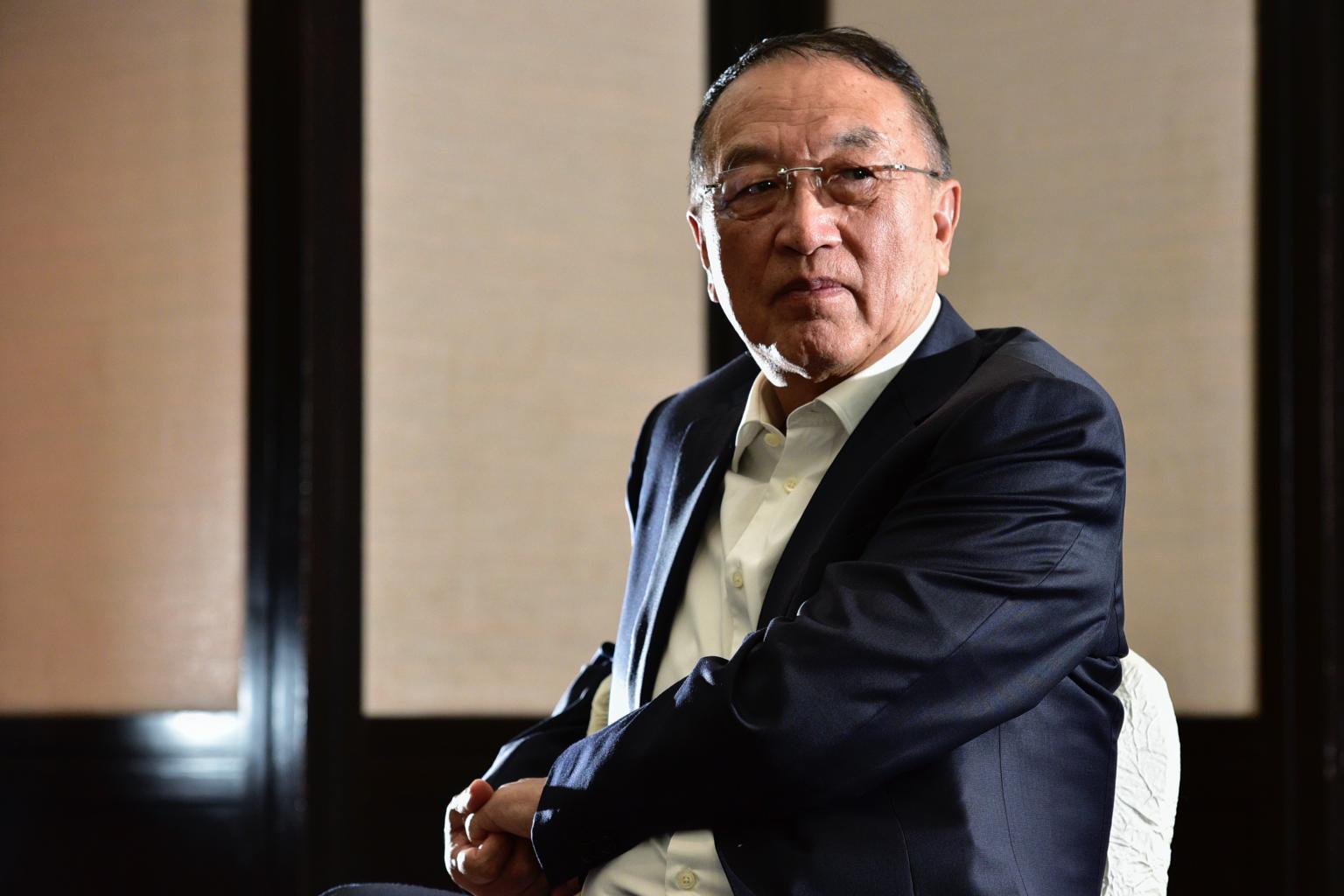For China's business elites, staying out of politics is no longer an option
Sign up now: Get insights on Asia's fast-moving developments

Weibo users urged the government to punish Lenovo founder Liu Chuanzhi for selling out national interests.
PHOTO: ST FILE
BEIJING (NYTIMES) - Mr Liu Chuanzhi, the founder of the tech company Lenovo and a towering figure in China's private sector, has long held the view that business people should steer clear of politics. Yet he recently found out first-hand that in Chinese President Xi Jinping's China, which is engaged in a tech cold war with the United States, business cannot just be business.
Over the past week, Mr Liu became collateral damage when the ride-hailing giant Didi, where his daughter Jean Liu is a top executive, came under fire after its blockbuster initial public offering (IPO) in New York.
Chinese regulators ordered the company, where Ms Liu is president, to stop signing up new users. They said Didi should also be pulled from Chinese app stores because of national security concerns and to protect the data of Chinese users.
The Chinese Internet immediately savaged Didi and Ms Liu - and then Mr Liu. A hashtag, #Didiapppulledfromappstores, which was started by the official People's Daily, was viewed more than one billion times over a 24-hour period on the Chinese social media platform Weibo.
Weibo users called Didi a "traitor" and a "walking dog of the United States". They urged the government to also punish Mr Liu for selling out national interests.
Beijing's actions against Didi - and the ensuing fallout - were part of a broadening crackdown by China against its home-grown tech companies. The shift began in November when regulators quashed the IPO of Ant Group, the tech and financial company run by billionaire Jack Ma. At the time, many viewed Beijing's moves against Ant and Mr Ma as inevitable to rein in the power of Big Tech.
This time, the clampdown on Didi may have an even deeper effect. The actions against Didi are a strong signal from Beijing to discourage listings of Chinese tech companies in the US, business people and entrepreneurs said, especially as the two countries battle for tech supremacy.
Internet infrastructure operators like Didi must now prove their political and legal legitimacy to the government, online media start-up founder Ma Changbo wrote on his WeChat social media account.
"This is the second half of the US-China decoupling," he wrote. "In the capital market, the model of playing both sides of the fence is coming to an end."
Didi, Mr Liu and his daughter did not immediately respond to requests for comment.
China's Internet companies have benefited from the best of two worlds since the 1990s. Many received foreign venture funding - Alibaba, the e-commerce giant, was funded by Yahoo and SoftBank, while Tencent, another Internet titan, was backed by South Africa's Naspers. They also copied their business models from Silicon Valley companies.
The Chinese companies gained further advantages when Beijing blocked almost all big American Internet companies from its domestic market, giving its home players plenty of room to grow. Many Chinese Internet firms later went public in New York, where investors have a bigger appetite for innovative and risky start-ups than in Shanghai or Hong Kong. So far this year, more than 35 Chinese companies have gone public in the US.
Now the Didi crackdown is changing the calculations for many in China's tech industry. One entrepreneur who has set her sights on a listing in New York for her enterprise software start-up said it would be harder to go public in Hong Kong with a high valuation because what her company does - software as a service - is a relatively new idea in China.
A venture capitalist in Beijing added that because of China's data security requirements, it was now unlikely that start-ups in artificial intelligence and software as a service would consider going public in New York. Few people were willing to speak on the record for fear of retaliation by Beijing.
At the same time, the US has become more hostile to Chinese tech companies and investors. As Washington has ramped up its scrutiny of deals that involve sensitive technologies, it has become almost impossible for Chinese venture firms to invest in Silicon Valley startups, several investors said.
In May, US lawmakers introduced a Bill to ban Chinese firms from listing on US exchanges if they did not comply with the same auditing standards as American companies. After Didi filed for its IPO, Republican senator Marco Rubio urged US regulators to block the listing.
Caught between an increasingly authoritarian government and an escalating geopolitical rift with the US, China's tech entrepreneurs and investors said they needed to rethink their positions in the new world.


